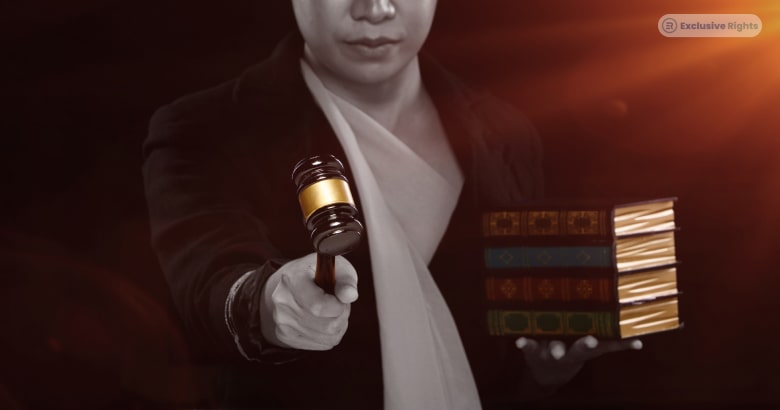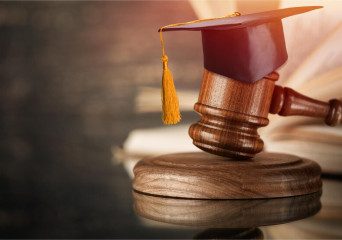
Table Of Contents
- What Exactly Does Education Encompass?
- What Is The Right To Education?
- The Universal Declaration Of Human Rights
- Convention Against Discrimination In Education
- The International Covenant On Economic Social And Cultural Rights
- Convention On The Rights Of The Persons With Disabilities
- The Declaration Of The Rights Of The Rights Of The Child
- The Constitutional Right To Education
- And That’s A Wrap!
What Does The Right To Education Mean? – Must Know
Education is our doorway to a better world. It is the one thing that makes us move out of the comfort of our homes, wake up early, and focus on studying, because? Grades are important. Yes. They are. But, Education is much more than grades.
The traditional and accepted terms of attending a reputed school, getting straight As throughout our school lives, getting admission into a good college, and even getting our masters and our Ph. Ds– Yes, that is not what the Right to Education is. Not just that at least.
What Exactly Does Education Encompass?

Education is when one acquires knowledge on various subjects and learns them well enough to impart and apply the knowledge in their daily lives. Education can be traditional in the sense that it can be academic. It can also mean the sharing of skills, values, arts, and even sports. A complete educational curriculum consists of all of the above.
Education is aimed to transform a person into a true global citizen and meaningful addition to society.
What Is The Right To Education?

It is one of the basic human rights that one is to enjoy by the virtue of being human. Some other basic human rights include the Right to free speech, the Right to practice and Preach one’s Religion of Choice, the Freedom from Arbitrary Arrest and Detention, etc.
The Right To Education has been given recognition in a number of international treaties, declarations, and conventions. They are:
The Universal Declaration Of Human Rights

The United Nations Universal Declaration Of Human Rights States the following in Article 26.
- Everyone is entitled to the Right to Education.
- Provisions are to be made by the Governments of the nations to arrange for free education at the elementary and fundamental levels at least.
- Elementary education is to be made compulsory by all authorities.
- Importance is also to be laid on technical and professional education.
- Educational facilities are to be unbiased and be made easily accessible to all, primarily on the basis of merit.
- Education is to be aimed to promote the complete development of a person.
- The education imparted to one shall be done with the aim to inculcate respect in them for Fundamental rights and freedoms.
- Education should be imparted with the aim to further tolerance, compassion, and friendship among different races, religions, and also people from varied national origins.
- A parent or a legal guardian in the absence of one has every right to choose the kind of education that is to be imparted to the child.
Convention Against Discrimination In Education

This Convention was hosted in Paris, in 1962, by a wing of the United Nations, UNESCO. This Treaty aimed to end discriminatory practices in the field of education. This multilateral treaty establishes that one is also free to choose any kind of religious or technical education that one wish.
The Public schooling system is open to all, however, they might also choose to be educated in a private institution if they please.
This treaty created an option for one to be educated in their native language, which in turn made education accessible in a lot of areas. The treaty was passed in order to hold up powerful sustainable goals.
The International Covenant On Economic Social And Cultural Rights
The Covenant states that education as a right should be available to all and also for the states where fundamental education is not available and free by means of public schools should also make provisions for the same.
Convention On The Rights Of The Persons With Disabilities
This Convention has made provisions that prohibit discriminatory practices against disabled persons.
The Declaration Of The Rights Of The Rights Of The Child
This declaration states that it is the duty of the government and society at large to provide the best possible opportunities for children. This also includes their right to Education.
The Constitutional Right To Education
The Constitution Of The United States also guarantees one’s Right To Education. While there is no expressed Article under the Constitution that guarantees one’s right to education, the 14th Amendment also guarantees one equality before the law and equal protection of the law. Thus by the virtue of the 14th Amendment, every child has the right to get equal opportunities for education solely based on merit.
In the case of Plyler v. Doe, the Right to Education was further established. The legislation was passed by the Texas government which stated that no children who were brought into the nation by illegal means were not to enjoy the right to an education that is enjoyed by all children who are natural citizens.
However, a court of law ruled out the decision stating that it stood in violation of the 14th Amendment to the United States Constitution.
And That’s A Wrap!
The right to education is a fundamental right that should ideally be enjoyed by all regardless of their race, color, political, or financial status. If the basic right to get an education is denied, one may never be able to break free from the shackles and move forward with life.
Malala Yousefzai is a classic example of how education and awareness can change your life for good, for the better, and even for the best.
Do let us know if you found the article informative!
Please let us know what you think of it in the comment box below!
Read Also:









